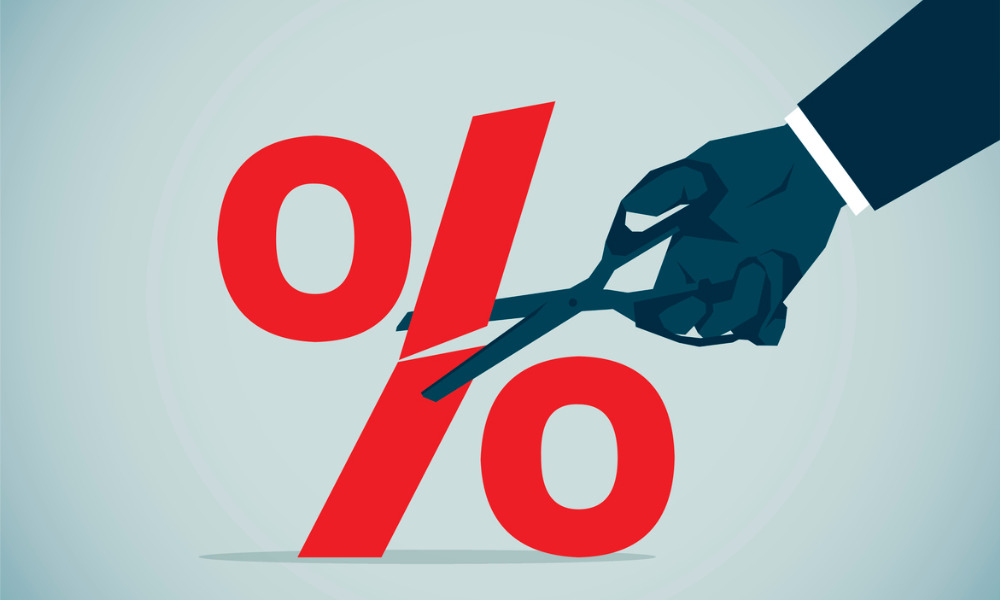

Politically, Reserve Bank boss Michele Bullock has to cut today at 2.30 pm. Economically, it would be positive if she bit the bullet, and the stock market would give her a big thumbs up.
Is a cut likely to happen?
Financial markets have computerised models that try to calculate the likelihood that the Reserve Bank Board headed up by Ms Bullock will give the green or red light to a change in rates. Right now, that hardly faultless model that guesses rate changes says it’s 95% certain that the RBA will cut!
However, this isn’t a psychologically based guessing or forecasting model. More appropriately, it looks at the balance of probabilities based on the economic readings out there. That 95% predictive number says there are strong arguments to believe that a cut happens today.
You have to remember that economists like me weren’t trained to say what a group of RBA board members will do. However, we are trained to say what we think they should do today.
Here’s the group of illustrious economic ‘smarties’ who expect a cut:
Citibank’s chief economist Paul Bloxham once expected no cuts in 2025 but now thinks Trump’s tariffs makes a cut a sensible move.
Need I go on? I don’t think so. Remember these guys are paid to be good at economic forecasting, which isn’t an easy job. ‘Guessing’ what the RBA board does is pretty damn important to the businesses that employ them.
The big economic reasons to cut are:
I could go on, but I think I’ll just say: “Trust me, I’m an economist!” (Stop thinking about the reliability of economists and weather forecasters!)
Of course, I could give you a long list of economic readings to prove my point but the fact that so many respected economics teams are saying a cut is coming, should be enough.
Alternatively, there’s an argument against a cut, best argued by Judo Bank’s chief economic adviser Warren Hogan. He thinks core inflation is sticky and won’t easily fall into the 2-3% band. He thinks a consumer recovery is under way, and he tips a rate rise later this year! He thinks wage rises are too high, and productivity is too low, and the job market isn’t weakening enough to give us a cut.
The funny thing about economics is that there are so many moving parts at any one time. New ones can come from left field, like Donald Trump and his tariffs, the potential strength of the Chinese economic recovery and the impact of Artificial Intelligence (AI). And then there can be reliability issues around economic indicators that become less predictive because, say, younger generations are very different from older generations.
Clearly, the Prime Minister is likely to call an election after a rate cut to reduce the likelihood of future economic releases screaming that the RBA has moved too early and no more cuts are coming. And maybe Hogan’s rate rise just might be on the cards!
Meanwhile, the stock market will love it because lower interest rates lead to lower costs for businesses and more willing buyers of ‘stuff’ that helps boost company profits. In turn, this drives up the share prices of companies that suffered under 13 rate rises and it should be a big plus for overall stock markets for the rest of 2025, provided more rate cuts happen over the year.
In contrast to Hogan, the CBA economics team expects four cuts this. You have to hope they have a better insight on what’s happening to a big chunk of Australian households because it’s our biggest bank.
If the cash rate is cut from 4.35% to 4.1%, repayments on a $600,000 mortgage would drop by $100 a month. The SMH reports that “Since the bank started lifting rates before the 2022 election, repayments on that mortgage have risen by almost $1500 a month.”
If the mortgage was $1.2 million, we are talking $3,000 a month or $36,000 a year! How many people are we talking about?
According to findings by Digital Finance Analytics (DFA), over 20,000 homeowners in Sydney have mortgages in the millions, a figure higher than anywhere else in Australia. It’s also an historical record.
If Michele Bullock and her board refuse to cut today, it could be seriously bad news for a weakening economy that needs a positive shot in the arm. It would be even worse news for Anthony Albanese.